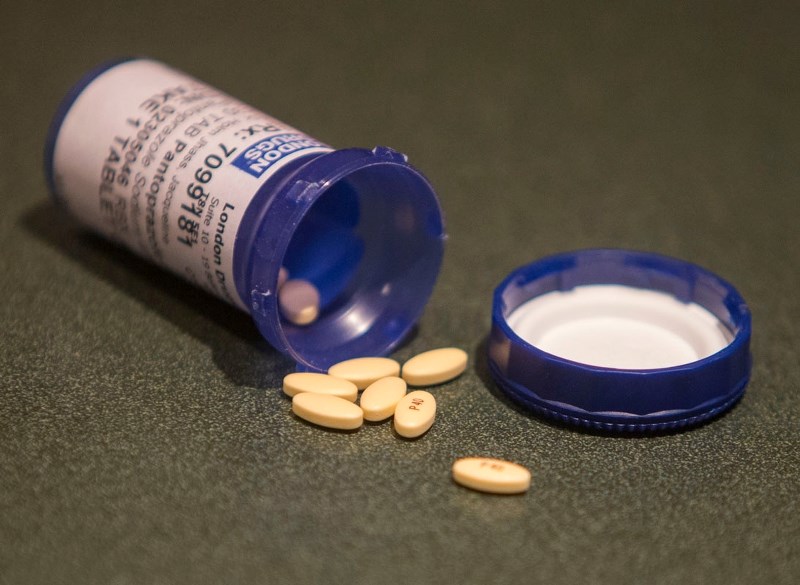The news some Shoppers Drug Mart location dispensed expired medication is a good reason for everyone to make sure they’re aware of what’s in their medicine cabinet.
Greg Eberhart, registrar with the Alberta College of Pharmacists, said this incident underscores the need for people to be well informed about all their medications.
“I think it underlines the importance of being knowledgeable about the importance of dating on drugs, whether they’re prescription or non-prescription medications,” he said.
Shoppers Drug Mart issued a statement last week saying about 100 clients in Western Canada received expired Alesse 21, a birth-control medication, and issued a warning that several other locations in Alberta may have dispensed the expired product.
While none of the three St. Albert locations were included on that list, some locations in north Edmonton, including Namao, were. Pharmacists from several St. Albert and Edmonton locations declined to comment.
Ashesh Desai, a spokesman for the company, said while the company has protocols in place to ensure expiry dates are checked there was a clerical error at the Calgary distribution centre that caused the expired product to be dispensed.
He said the situation was “unacceptable,” and professional responsibility ultimately rests with the pharmacist to ensure details like the patient’s name, the doctor’s name, the medication, the dosage and the expiry date are correct prior to dispensing the product.
“Obviously in this case, that did not occur, so we will go back and reinforce that message,” he said.
Desai said there will also be upgrades to the computer system in pharmacies that will require the expiry date of medication to be entered into the system prior to the physical copy being printed out, and upgrades at the distribution centre to ensure this doesn’t happen again.
Eberhart said, at this point, the college’s priority is working to figure out the process that caused this problem to occur in the first place, rather than looking at any sort of sanction or reprimand to the pharmacists involved.
“We’ll seek to find out what contributed to those oversights and what needs to be put in place to prevent it from reoccurring,” he said.
He said that standard practice for pharmacists should include checking the expiry date, among other things, and in receiving the drug or product one would also double check the expiry date provided by the manufacturer.
As for any risk to patients, Eberhart said he thought it would be minimal.
“Knowing what the expiry dates of this drug were, and when this was identified, we don’t condone the dispensing of a drug that’s outdated but the probability to adverse events or the relative risk is probably limited at this point,” he said.
Dr. James Kehrer, the dean of the faculty of pharmacy at the University of Alberta, said while it’s almost unheard of that expired medication would be dispensed so broadly, there is actually not a huge danger in consuming a medication that’s past its expiry date. Expiry dates are put on a broad range of products for human consumption, but often mean different things.
On a box of potato chips the expiry date might just mean the product won’t be as good after that date, but won’t necessarily be dangerous. On raw meat and milk, on the other hand, the expiry date is an indicator of whether it’s safe to consume.
For pharmaceutical products, the expiry date has a more specific purpose, ensuring the active ingredient is still present in significant quantity.
“They have to guarantee that at least 95 per cent of the active ingredient remains there,” Kehrer said. “They’re going to be very conservative on that date.”
While the actual shelf-life of drugs will vary depending on their contents and their format – tablets are more stable than liquids, for example – once a medication is opened it may break down faster being exposed to air and moisture.
Regardless, in the case of prescription medications it’s always best to err on the side of caution and return the product to a pharmacy if you don’t use it all, rather than save it for later use.
“If you are treating yourself with the same disease later on, then you probably have a fool for a patient,” Kehrer said. “You don’t want to do that because you may not have the same thing.”




